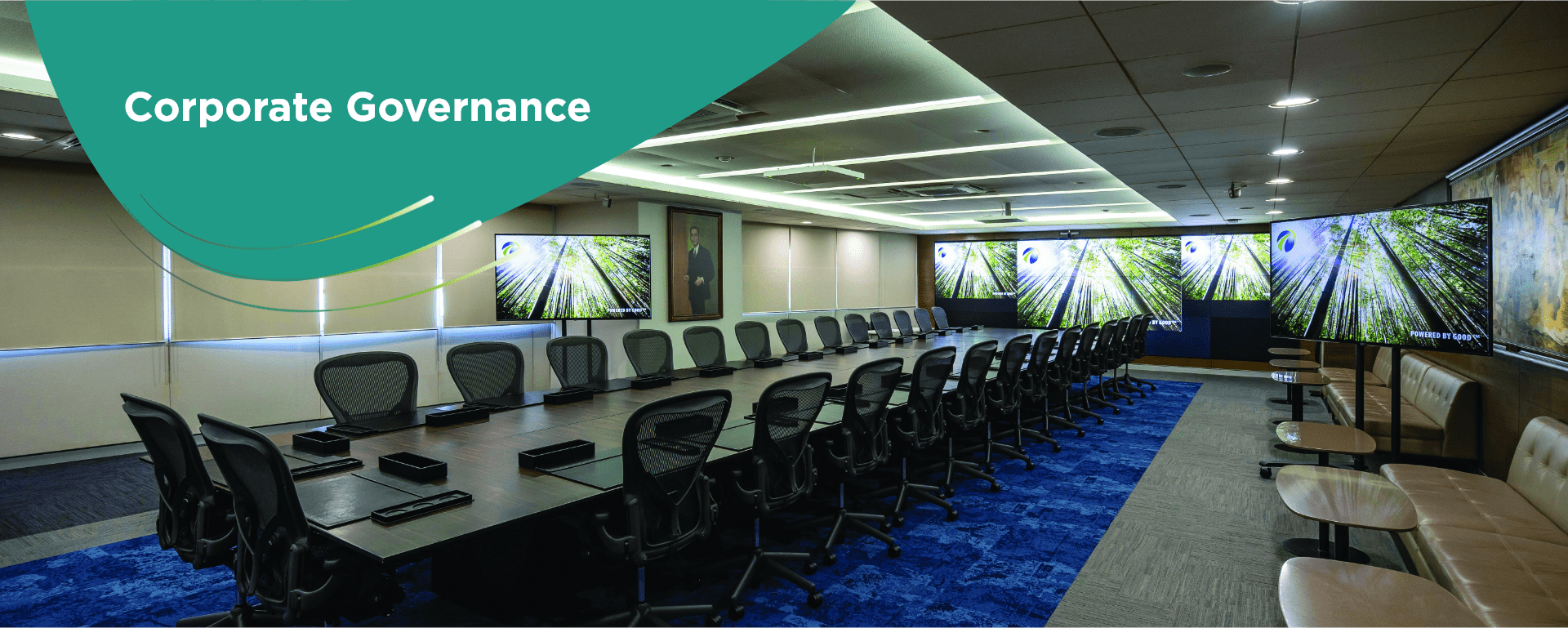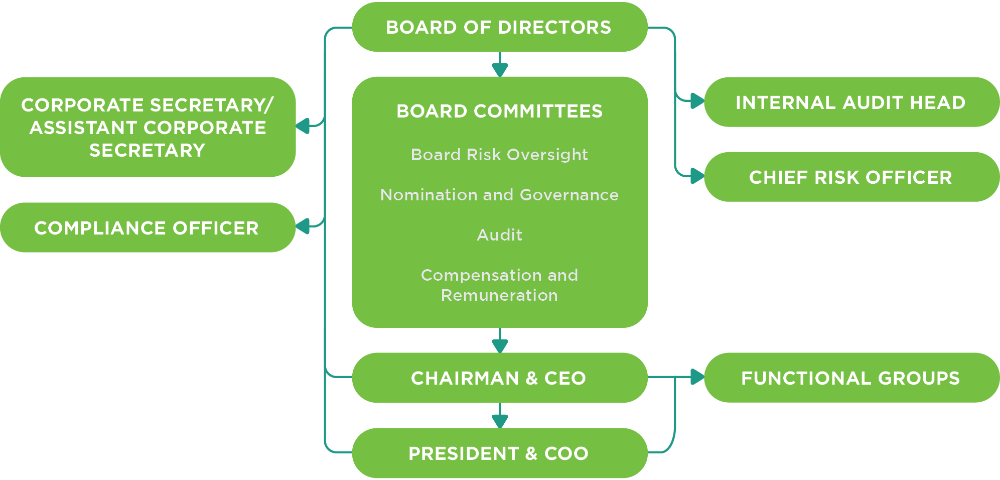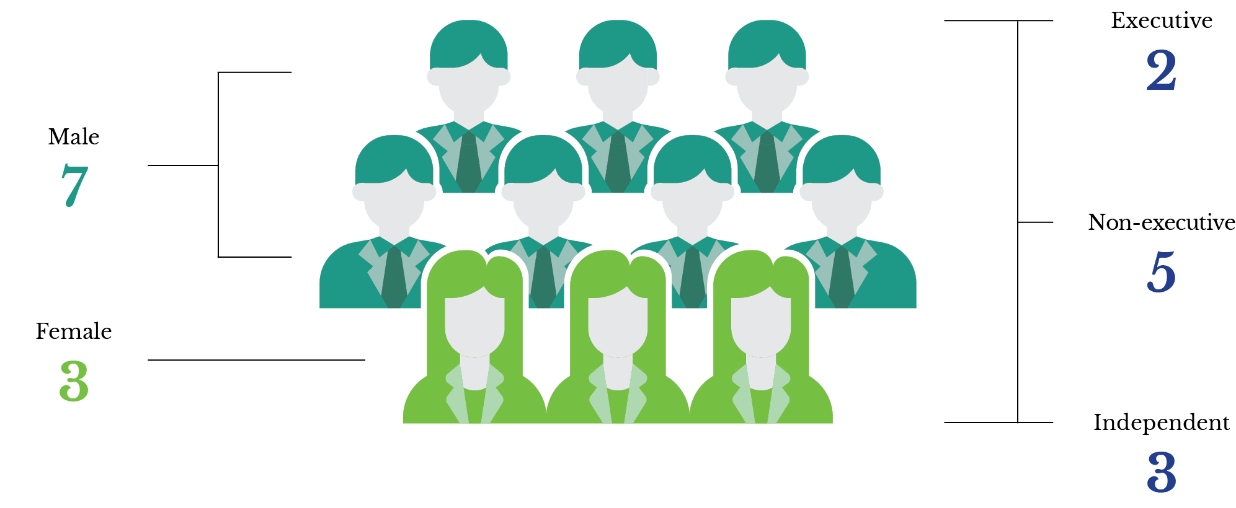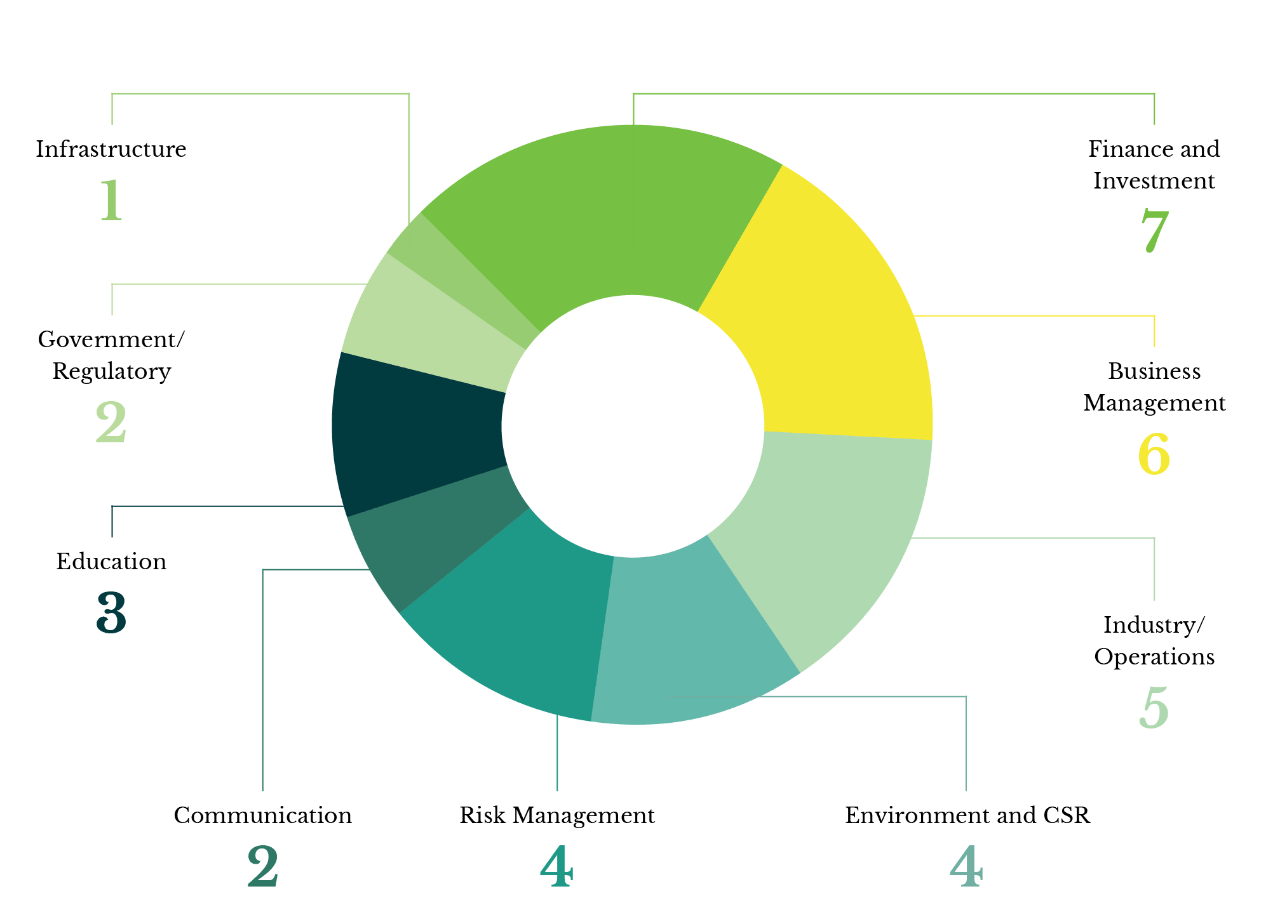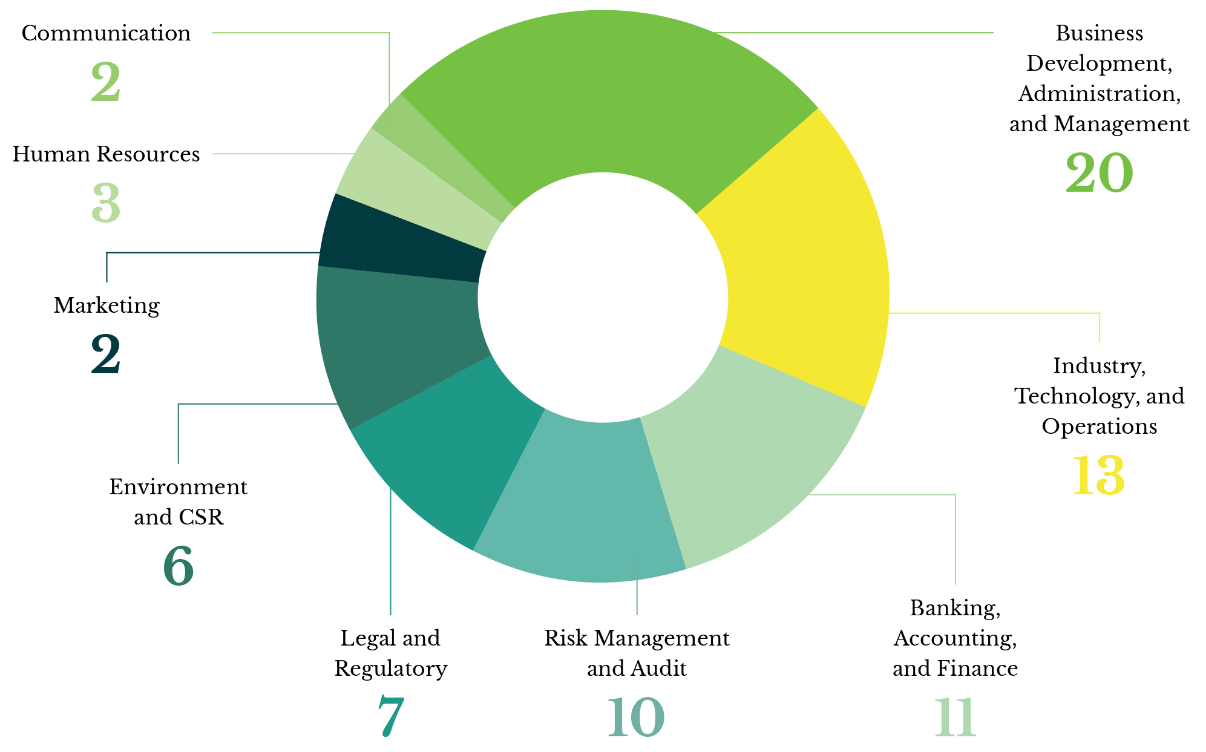
The Management
Approach on Governance
First Gen understands the importance of good corporate governance in fostering the Company’s long-term success and securing sustained competitiveness in the energy industry. The Company remains steadfast in its commitment to finding resilient and regenerative solutions to mitigate the worsening effects of climate change. First Gen ensures that it strictly complies with corporate governance regulations and continuously improves its corporate governance structures to comply with and even perform beyond global best practices. The Company’s governance structure is detailed in its Manual on Corporate Governance, which is available on the Company’s website. Details of the Company’s governance practices are found in its Integrated Annual Corporate Governance Report, which is likewise posted on the Company’s website.
First Gen’s approach to corporate governance is guided by the Lopez Values, adherence to the SEC’s issuances on governance, respect for human rights, and our commitment to ESG safeguard principles. Our structure, policies, programs, and protocols ensure the following:
- Full compliance with local regulations and international conventions signed by the country and relevant to our operations;
- Balanced emphasis on financial and non-financial aspects of the Company’s business strategy, operations and performance to achieve short- and long-term goals
- Creation of an environment that will protect the rights and allow equal treatment of all stakeholders;
- Sufficient controls that ensure effective management oversight within a culture of honesty and accountability throughout the organization; and
- Robust stakeholder engagement with timely disclosure of relevant information and the installation of necessary feedback mechanisms.

